‘Factories in Syria were dismantled by militants and… exported to neighbouring Turkey’
Truths and myths about events in Syria. Part 2: the economy.
Anhar Kochneva continues to tell about Syria to Realnoe Vremya, exposing prejudice. In the previous article, she told about the general state of affairs in the country. Today, she will speak about the economy of the country being torn by a civil war and the lives of the Syrians in the current crisis conditions. She believes that in spite of the devastation, there are new opportunities for investors now.
The prewar economic boom
An important part of life of any country is its economy. Especially it is interesting what is happening in the economy of Syria. Despite the war, partial destruction and stifling international sanctions, it continues to build, to pay salaries and allowances, to participate in several international exhibitions. Today I will tell a little about what is happening in the economy of Syria and its prospects in case of a cease-fire.
To begin with, in the last pre-war years, the economy of Syria was on the noticeable rise. Foreign investors invested in the rapidly developing country. Syria itself invested in the neighboring states, for example, there were many joint projects in Jordan. Due to the fact that the Syrians withdrew in time at least some part of circulated in the Jordanian economy money, they have managed still to keep afloat.
Many economists in Syria stress the fact that despite the devaluation of the national currency and its depreciation, salaries to employees and officials are to be paid in a timely manner.
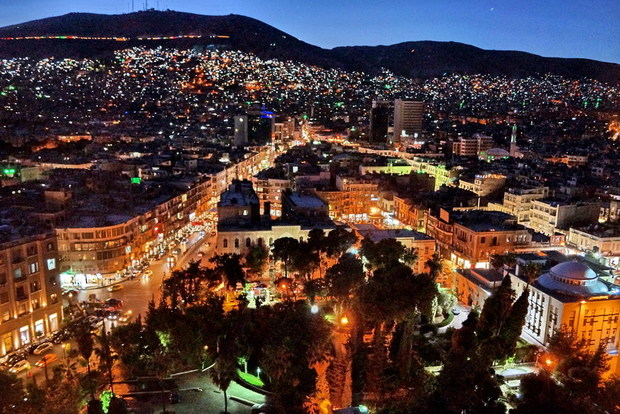
The Jordanian economy despite the fact that on the territory of this country there are no military operations, the country is under severe economic difficulties. The banking sector, freight and passenger haulage, trade largely focused on the cooperation with Syria.
Syria still remains an important regional supplier of agricultural products and industrial goods, for example, in Lebanon. Due to the presence of militants in neighboring with the border with Jordan regions of Syria and complete closure of the Syrian-Turkish border the overland transit of goods through Jordan to the Gulf countries has stopped, that was the tangible source of replenishment of the budget.
Industry has been destroyed
But, let's go back to Syria. In the pre-crisis years, the dollar to the Syrian lira fluctuated between 45-54 lire for one 'dead American President' (as they call the American currency in the country). Today, for one dollar they give about 400 lire on the black market. In other words, those, whose wages have not been restated due to inflation and the depreciation of the national currency, now in dollar terms get 8-9 times less. But, this is only part of the problem.
It's amazing, but militants often capture and turn industrial areas into an arena for actions. They destroy small and large enterprises for the production and repair. Syria, which until recently provided almost entirely all by itself, suddenly left without a lion's share of its industry.
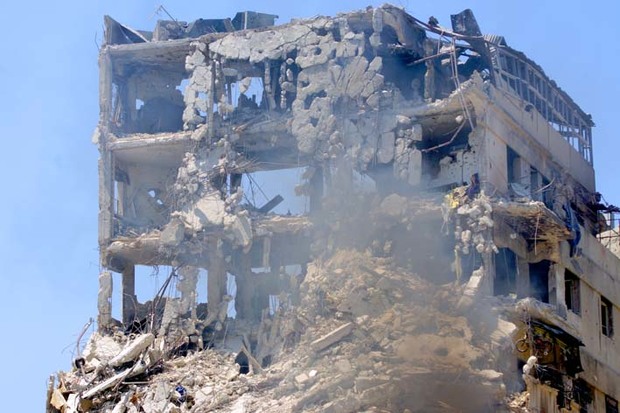
Almost everything had been produced here. There had been produced very good and very cheap drugs. Home textiles, some brand clothing that were made in Syria (Benetton, Stefanel, Ted Lapidus, the Adidas factory was in the Damascus area). Furniture, fabrics, household items were produced here. There started the production of home appliances, mopeds, even licensing cars and those produced in Syria (an Iranian plant).
Turkish impact
Today, the majority of Syrian producers have lost their business. The factories in Aleppo, according to eyewitnesses, were dismantled by militants and… exported to neighboring Turkey. I would like to note that Aleppo for a long time was a competitor to Turkish companies in the production of goods, and the Turks lost a significant portion of the potential profits. They call the number of 1600 completely stolen enterprises. And that was not stolen, it was destroyed.
It is clear that the owners of companies also lost their incomes, as well as workers, trade agents, and sellers. The consumers in Syria instead of buying the locally produced goods were forced to buy more expensive goods produced abroad. It also affected the budget of ordinary citizens.
Food crisis
The fact that militants captured vast enclaves in rural areas, also has caused and is causing considerable damage to both the economy and ordinary people in Syria. For example, a year ago, almost nowhere people could buy a traditional product, like pistachios. The thing is, near the city of Hama, where there are the main gardens with these trees, fierce fighting took place.
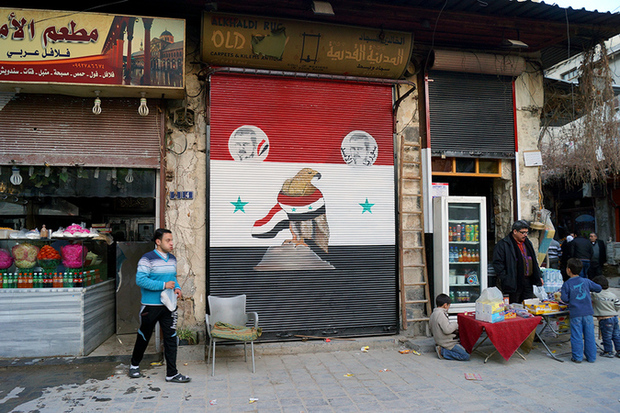
As in the previous years, armed militants took away gathered and packed harvest from peasants. In some areas, for example, in blocked by militants Shiite villages in Aleppo, peasants were fired on their fields and in their gardens by the bandits to worsen the food situation in these enclaves.
As a result, a few years ago, Syria, one of region's suppliers of the products, also felt the lack of food and certain goods. Fired roads and fields, the rising cost of transportation have led to an increase in the cost of everything. For example, last month in Damascus a kilogram of zucchini cost more than 2 dollars. Earlier, they could buy a whole box of these zucchini for this money.
Syrians got used buying everything in large amount. Previously, it was available to anyone. Now, no one has enough money.
In this regard, I would like to mention that you should not take to Syria products – Syrians have them and the products cost much less than imported by air humanitarian aid. People more need money to buy cheap goods and products produced in Syria itself. They will buy what they really need. People tired of eating only humanitarian rice and pasta, I've tried. Especially instead of hateful pasta children want apples, grapes, tomatoes and watermelons.
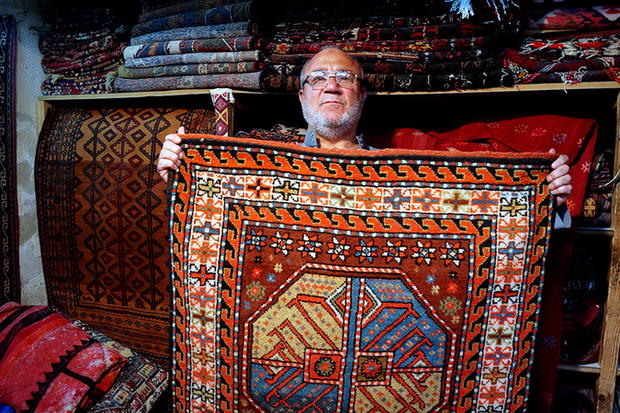
Now $50 is a decent salary
Damascus and Latakia received a majority of IDPs from other parts of the country. It is peaceful here, no military actions. But there are no jobs as well. On the coast, enterprises have almost never been built. So, many young people from this region went to war: any profession and a piece of bread.
Now, a decent salary for Syrians – those who have a job – $ 50-60. It is when only one breadwinner while the elder sons have not grown up yet and don't work. Most women in Syria didn't work, they stayed at home or worked with their husbands in the field, if we are talking about peasants. In the cities, the percentage of working women was more, but before the crisis they didn't have to work – there was enough of what men earned.
Most families had a lot of children. In some rural areas, a family could have 10-12 children. By the way, this is one of the best evidence that before the crisis the population lived reasonably well: large families did not live in clover, but not in poverty. Otherwise, Syrians would have been forced to think about population control. Now, these families, if they had to flee from the militants to the cities, instead of spacious houses they took shelter in small apartments (rent has increased).
According to unofficial information, the population of Damascus and Damascus region as a result of the resettlement of refugees here from all over the country has almost doubled and reaches about 9 million people (which is slightly less than a half the population of the whole country). They don't have enough money, as already stated above.
Syria, despite everything, remains a relatively cheap country, but still not a state where you can live with a family on $ 50 per month. Especially, if you still have to pay for the rent for a roof over their head. Many people are not able to find a job, food bags with the necessities help out, that are issued to the IDPs by the government and offices of the world food programme to the United Nations.
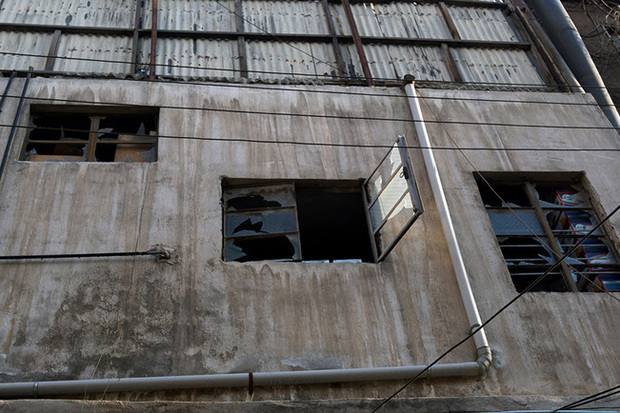
A chance for investors
Despite a huge number of deaths (according to unofficial sources, there are more than one million victims, most of them were exactly supporters of the current government), despite a large percentage of IDPs and lost the lion's share of industrial facilities and means of production, Syria still remains a country with huge production capacity. Qualified personnel have not gone away.
If Syria gets investments and more modern technologies, the country will quickly be able to solve the problem of employment, and to flood the market with goods of its own production and become a supplier of its products to the markets of Lebanon, Jordan, Iraq and possibly Russia. There is a chance that due to significant loss of outdated means of production produced in new Syria products will be more demanded. The decline in living standards and wages at the initial stage will allow covering expenses.
The withdrawal from Syria of Western and Arab investors gives a chance to redistribute the market by the countries friendly to Syria. For example, they talk about the enormous contracts on the construction of new modern residential complexes on the territory of former illegally constructed slums (by today's standards, most of them are very close to the centre of Damascus).
Despite a frightening picture from TV, the country can be an object of investments: instead of just concentrating businesses in one single Aleppo, the production capacities can be placed in other safe areas of the country where there is no danger of sabotage and there are a large number of unemployed qualified people. Now, the aid to the recovery of the economy, saturation of the means of production are necessary for the country in the first place.
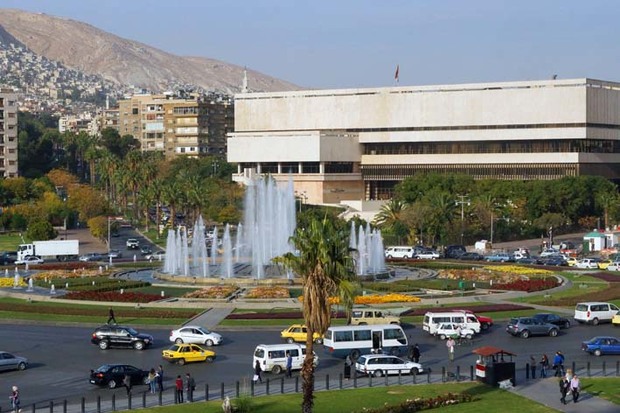
Reference
Anhar Vladimirovna Kochneva – a journalist, a blogger.
- The author of articles on the Middle East, a member of travel forums. Since 1999 worked as a travel agent in Syria, Jordan and Lebanon. Made travel guides in Jordan and Cairo. With the beginning of the civil war in Syria, she worked as a coordinator of arrived to the country journalistic groups from the CIS countries.
- In October 2012, she was captured by militants, was in captivity for 153 days, then escaped.
- Later returned to Damascus and continued to work as a journalist.
- Currently, she is living in Lebanon.
- Published on her own website anhar.ru, as well as on jordanclub.ru, beirut.ru. Blog on LiveJournal (anhar.livejournal.com).